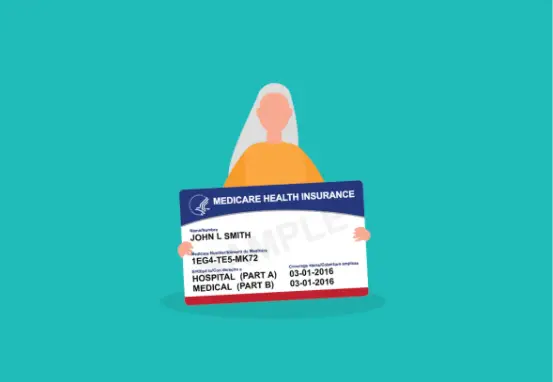What is Medicare? A Comprehensive Guide for Soon-to-Be Seniors
What is Medicare? As you approach your 65th birthday, you’ve likely heard the term “Medicare” mentioned more and more frequently. But what exactly is Medicare, and how does it work? This comprehensive guide will break down the essentials of Medicare, helping you understand this crucial health insurance program as you prepare for this new chapter in your life.
The Basics of Medicare
What is Medicare? Medicare is a federal health insurance program primarily designed for people aged 65 and older. It was established in 1965 to ensure that senior citizens and certain younger individuals with specific disabilities have access to affordable health care.
Who is Eligible for Medicare?
Generally, you’re eligible for Medicare if:
- You’re 65 years or older
- You’re under 65 with certain disabilities
- You have End-Stage Renal Disease (ESRD) or Amyotrophic Lateral Sclerosis (ALS)
The Four Parts of Medicare
Medicare is divided into four parts, each covering different aspects of health care:
Medicare Part A
What it Covers
Part A is hospital insurance. It covers:
- Inpatient hospital stays
- Skilled nursing facility care
- Hospice care
- Some home healthcare
Eligibility and Costs
Most people don’t pay a premium for Part A if they or their spouse paid Medicare taxes for at least 10 years.
Medicare Part B
What it Covers
Part B is medical insurance. It covers:
- Outpatient care
- Preventive services
- Medical supplies
- Mental health services
Eligibility and Costs
Part B requires a monthly premium, which is either deducted from your Social Security benefits or billed to you directly.
Medicare Part C (Medicare Advantage)
Medicare Advantage plans are offered by private insurance companies approved by Medicare. They provide all Part A and B coverage, and often include additional benefits like dental, vision, and prescription drug coverage.
Medicare Part D
Part D provides prescription drug coverage. It’s offered by private insurance companies approved by Medicare and can be purchased as a standalone plan or included in a Medicare Advantage plan.
Understanding Original Medicare
Original Medicare refers to Part A and Part B together.
What Original Medicare Covers
- Hospital stays
- Doctor visits
- Preventive services
- Medical equipment
What Original Medicare Doesn’t Cover
- Long-term care
- Most dental care
- Eye exams related to prescribing glasses
- Dentures
- Cosmetic surgery
- Acupuncture
- Hearing aids and exams to fit them
Medicare Part A in Detail
Hospital Insurance Explained
Part A is often called “hospital insurance” because it primarily covers inpatient care.
Inpatient Care Coverage
This includes semi-private rooms, meals, general nursing, and drugs as part of your inpatient treatment.
Skilled Nursing Facility Care
Part A covers skilled nursing care in a skilled nursing facility under certain conditions.
Home Health Care
Limited home health care is covered if you meet specific requirements.
Hospice Care
Hospice care is covered if your doctor certifies that you’re terminally ill.
Part A Premiums, Deductibles, and Coinsurance
While most people don’t pay a premium for Part A, there are deductibles and coinsurance for long hospital stays.
Medicare Part B in Detail
Medical Insurance Explained
Part B covers two types of services:
Medically Necessary Services
These include services or supplies needed to diagnose or treat your medical condition.
Preventive Services
These are health care services to prevent illness or detect it at an early stage.
Outpatient Care Coverage
This includes doctor visits, lab tests, and some emergency room services.
Durable Medical Equipment
Part B covers medically necessary durable medical equipment prescribed by your doctor for use in your home.
Part B Premiums, Deductibles, and Coinsurance
You pay a monthly premium for Part B. After you meet your deductible, you typically pay 20% of the Medicare-approved amount for most doctor services.
Medicare Enrollment Periods
Initial Enrollment Period
This is a 7-month period that begins 3 months before your 65th birthday, includes your birthday month, and extends 3 months after.
Special Enrollment Period
If you delayed enrolling in Medicare because you had employer coverage, you may qualify for a Special Enrollment Period when that coverage ends.
General Enrollment Period
If you miss your Initial Enrollment Period and don’t qualify for a Special Enrollment Period, you can sign up during the General Enrollment Period from January 1 to March 31 each year.
Annual Enrollment Period
This period, from October 15 to December 7 each year, allows you to change your Medicare coverage.
Medicare Costs and Financial Assistance
Understanding Medicare Premiums
Premiums vary depending on the parts of Medicare you choose and your income level.
Medicare Savings Programs
These state programs can help pay Medicare premiums and other costs for people with limited income and resources.
Extra Help for Part D
This program helps people with limited income pay for prescription drugs.
Medicare and Other Insurance
Medicare and Employer Coverage
If you’re still working at 65, you may be able to delay Medicare enrollment without penalty.
Medicare and Retiree Insurance
Medicare typically pays first, and your retiree coverage pays second.
Veterans Benefits
You can have both Medicare and VA benefits, which can provide more comprehensive coverage.
Supplementing Medicare Coverage
Medigap (Medicare Supplement Insurance)
These policies can help pay some of the health care costs that Original Medicare doesn’t cover.
Medicare Advantage Plans
These plans offer an alternative way to get your Medicare benefits.
Common Medicare Myths and Misconceptions
- Medicare covers all health expenses (it doesn’t)
- Medicare and Medicaid are the same (they’re not)
- You don’t need Medicare if you’re healthy (not true – it’s important to enroll when first eligible)
Preparing for Medicare Enrollment
Steps to Take Before You Turn 65
- Research your Medicare options
- Understand your current health needs
- Consider your budget
Gathering Necessary Documents
Have your Social Security card and other identification ready when you enroll.
Future of Medicare
While Medicare has changed since its inception, it remains a cornerstone of health care for American seniors. Stay informed about potential reforms that may affect your coverage.
Conclusion
Understanding Medicare is crucial as you approach 65. While it may seem complex, breaking it down into its parts makes it more manageable. Remember, you’re not alone in this process – there are resources available to help you make informed decisions about your healthcare coverage.
Next Steps
Are you turning 65 soon and feeling overwhelmed? Don’t navigate this complex system alone. Contact Craig Smith Insurance Group today for a free Medicare consultation. We’re here to help you understand your options and find the coverage that best fits your needs and budget.










